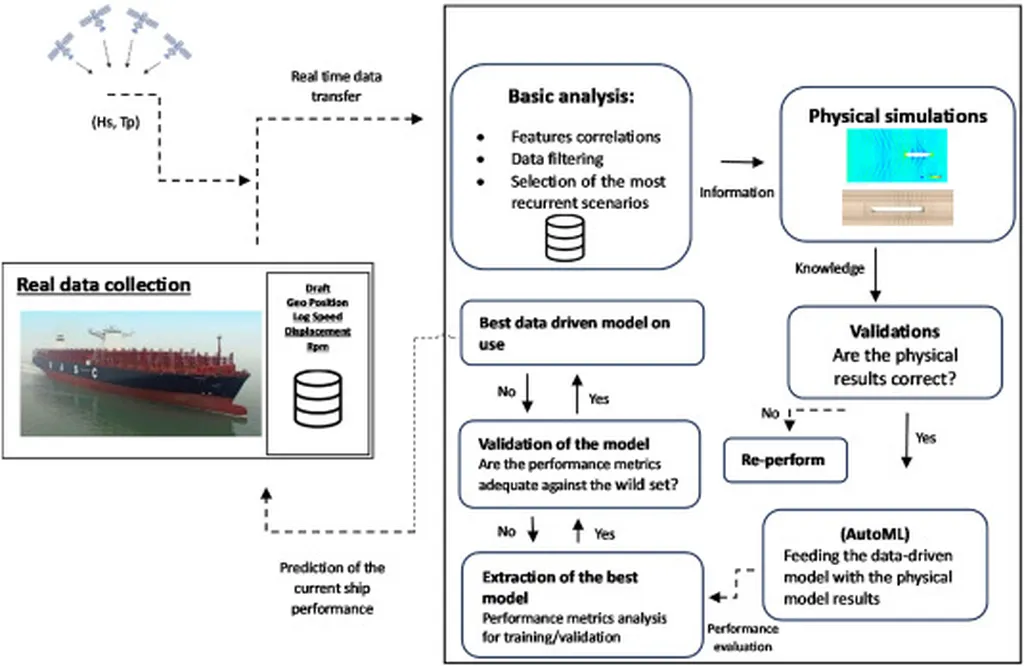In a significant stride towards greener maritime operations, researchers have developed advanced data-driven models to predict and optimize ship fuel consumption, offering a practical solution to reduce emissions and cut costs. The study, led by Negar Azemati from the Department of Maritime Engineering at Amirkabir University of Technology in Iran, was recently published in the Polish Maritime Research journal, known in English as ‘Polish Maritime Research’.
The research tackles the pressing need for accurate fuel oil consumption (FOC) prediction and optimization, driven by increasingly stringent international climate policies. Azemati and her team employed two main approaches for FOC prediction: real-time and time-series methods. The standout performers were XGBoost, an ensemble learning model, and Meta-BiLSTM, a deep learning model based on stacking theory. These models achieved impressive mean squared errors of 0.04% and 0.07%, respectively, indicating high accuracy in their predictions.
But the innovation doesn’t stop at prediction. The researchers also developed a framework for FOC optimization. They clustered the ship’s route optimally based on meteorological data, ensuring continuity within each cluster. Then, they integrated the FOC prediction model with an improved grey wolf optimizer (IGWO) algorithm to adjust the optimal sailing speed for each cluster along the route. This method proved to be more practical under operational conditions than alternative methods.
The results were substantial. For the container ship studied, the speed optimization method achieved an FOC reduction of 4.54%, equivalent to 33.14 tons. “The speed optimisation method employed in this research appears to be more practical under operational conditions than alternative methods,” Azemati noted, highlighting the real-world applicability of their work.
The commercial impacts of this research are considerable. With fuel costs being a significant expense for shipping companies, accurate prediction and optimization of FOC can lead to substantial savings. Moreover, as the maritime industry faces increasing pressure to reduce greenhouse gas emissions, this research offers a practical solution to meet regulatory requirements and contribute to global climate goals.
The opportunities for the maritime sector are vast. The data-driven models and IGWO algorithm developed in this study can be applied to various types of ships and routes, offering a flexible and adaptable solution for fuel optimization. Furthermore, the integration of meteorological data in route planning can enhance operational efficiency and safety.
In the words of Azemati, “As international climate policies become more stringent, accurate prediction and optimisation of fuel oil consumption (FOC) are now crucial for analysis of a ship’s navigation status, energy conservation, and reductions in greenhouse gas emissions.” This research is a significant step towards achieving these goals, offering a practical and effective solution for the maritime industry.

